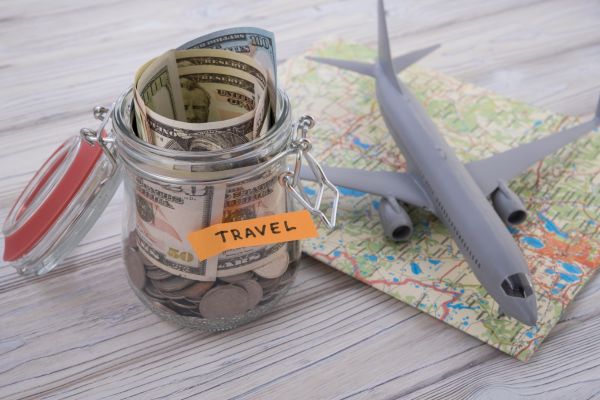Traveling doesn’t have to drain your bank account. In fact, with the right approach, budget travel can be just as fulfilling, enriching, and exciting as a luxury vacation. Whether you’re a student hoping to explore the world, a solo traveler seeking new experiences, or a family planning a vacation on a tight budget, smart financial planning can open the door to unforgettable adventures. Budget travel is more than just a cost-cutting strategy—it’s a lifestyle that empowers you to experience the world more authentically, connect with local cultures, and embrace the beauty of simplicity.
Understanding the Art of Budget Travel
At its core, budget travel is about prioritizing experiences over extravagance. It doesn’t mean compromising comfort or safety—it means being strategic. It’s about knowing where to cut back without sacrificing the essence of the journey. From choosing the right destinations to finding affordable accommodations, every decision matters. Travelers who embrace this mindset often discover that spending less leads to richer, more meaningful encounters.
Many people assume that a smaller budget limits their options. In reality, it expands your ability to travel more frequently, stay longer, and connect with locals in ways big-budget tourists often miss. Budget travel encourages creativity and flexibility—two traits that turn ordinary trips into extraordinary ones.
Choosing Destinations That Align With Your Budget
One of the smartest ways to travel on a budget is to select destinations where your currency stretches further. Countries in Southeast Asia, Eastern Europe, and parts of Central and South America offer incredible experiences at a fraction of the cost of more developed regions. By researching average daily costs, local transportation prices, and food affordability, travelers can make informed decisions about where to go without breaking the bank.
Moreover, the time of year you travel can dramatically impact your expenses. Off-season travel not only results in cheaper flights and accommodations, but also offers a more relaxed atmosphere, fewer crowds, and better opportunities to engage with locals. Traveling outside peak times can transform a typical vacation into an authentic cultural experience.
Finding Affordable Flights Without the Stress
Airfare is often the largest expense when planning a trip, but with a little effort, significant savings are possible. Flexible travelers tend to score the best deals. Being open to flying on weekdays, using budget airlines, and considering nearby airports can drastically lower costs. Signing up for fare alerts and tracking ticket prices over time provides valuable insight into pricing trends and ensures that you don’t miss out on the best offers.
Another effective approach involves using flight comparison tools and clearing your browser cookies regularly. This prevents websites from inflating prices based on repeated searches. With a combination of strategy and timing, budget travel becomes more attainable, even for destinations that initially seem expensive.
Saving on Accommodation Without Sacrificing Comfort
When people think of budget travel, they often imagine hostels or couch-surfing, but today’s travelers have a variety of affordable options. Short-term rental platforms, local guesthouses, and boutique budget hotels offer competitive rates and often include amenities like kitchen access or complimentary breakfasts. These features not only reduce the cost of lodging but also cut down on food expenses.
Staying slightly outside city centers or popular tourist zones can significantly reduce accommodation costs while providing a more immersive experience. Often, these neighborhoods reveal the everyday charm of a place—the corner café, the friendly grocer, the quiet street with hidden beauty—all of which contribute to a deeper connection with the destination.
Embracing Public Transportation and Walking
One of the simplest and most effective budget travel strategies is to walk whenever possible. Exploring on foot not only saves money but allows travelers to notice the small details that give a place its character. Narrow alleys, vibrant murals, or the scent of local dishes wafting from open kitchens—these sensory details often become the most memorable parts of the journey.
For longer distances, public transportation is usually more affordable and efficient than taxis or rideshare services. Buses, subways, and trains offer a window into daily life and are often well-connected to major attractions. In some cities, purchasing travel cards or passes provides additional savings and convenience, making it easier to get around without overspending.
Eating Well Without Overspending
Food is an integral part of travel, and budget travel doesn’t mean missing out on culinary delights. In fact, avoiding expensive restaurants can lead to more authentic dining experiences. Street food, local markets, and family-run eateries often serve traditional dishes at a fraction of the cost of tourist-oriented venues. Not only do they satisfy hunger, but they also offer insight into the culture and flavors of a region.
Many accommodations offer kitchen access, enabling travelers to cook their own meals with local ingredients. This can be both a fun cultural experience and a cost-saving strategy. Shopping at local markets or grocery stores provides an opportunity to engage with residents and discover regional specialties that tourists rarely encounter.
Maximizing Free and Low-Cost Activities
Traveling on a budget doesn’t mean limiting your experiences—it means choosing wisely. Many cities and towns offer free walking tours, cultural events, and open-access museums. Parks, beaches, and public landmarks provide opportunities for exploration and relaxation without any cost. Taking the time to research free attractions in advance ensures you make the most of every destination.
Additionally, talking to locals often reveals hidden gems and affordable activities not found in guidebooks. Whether it’s a secret hiking trail, a community festival, or a scenic viewpoint, these experiences often create the most lasting memories. Budget travel, at its best, blends careful planning with spontaneous discovery.
Planning Ahead While Staying Flexible
Planning is essential for budget travel, but so is flexibility. Booking transportation and lodging in advance usually results in better prices, but being adaptable allows you to take advantage of unexpected opportunities. Maybe it’s a last-minute deal, a weather-dependent activity, or an invitation to a local gathering. Budget-conscious travelers who remain open to change often enjoy the richest experiences.
Carrying a flexible itinerary doesn’t mean traveling without a plan—it means understanding that the journey might unfold differently than expected. This mindset, grounded in curiosity and openness, is what sets successful budget travelers apart.
Making Budget Travel a Sustainable Lifestyle
Budget travel isn’t just for one-off trips—it can become a sustainable way to see the world. Travelers who consistently prioritize value over luxury often find themselves able to travel more frequently and for longer periods. By choosing sustainable options, such as supporting local businesses, reducing waste, and traveling slowly, you not only stretch your budget but also minimize your environmental footprint.
This thoughtful approach to travel enriches both the traveler and the destinations visited. When you shift the focus from consuming experiences to connecting with people and places, each journey becomes more meaningful. In this way, budget travel evolves from a cost-saving method into a philosophy of intentional living.
Conclusion: The Rich Rewards of Budget Travel
Budget travel is far more than pinching pennies—it’s about making informed, mindful choices that lead to genuine connection and unforgettable moments. It teaches us to value simplicity, embrace flexibility, and find joy in the unexpected. Whether you’re exploring your own country or venturing across continents, smart budget travel practices can help you do more with less, all while enriching your understanding of the world.
With careful planning, a flexible mindset, and a spirit of adventure, the dream of exploring the globe doesn’t have to come with a hefty price tag. Instead, it becomes an ongoing journey of discovery—one that proves the richest experiences are not measured in money, but in meaning.





